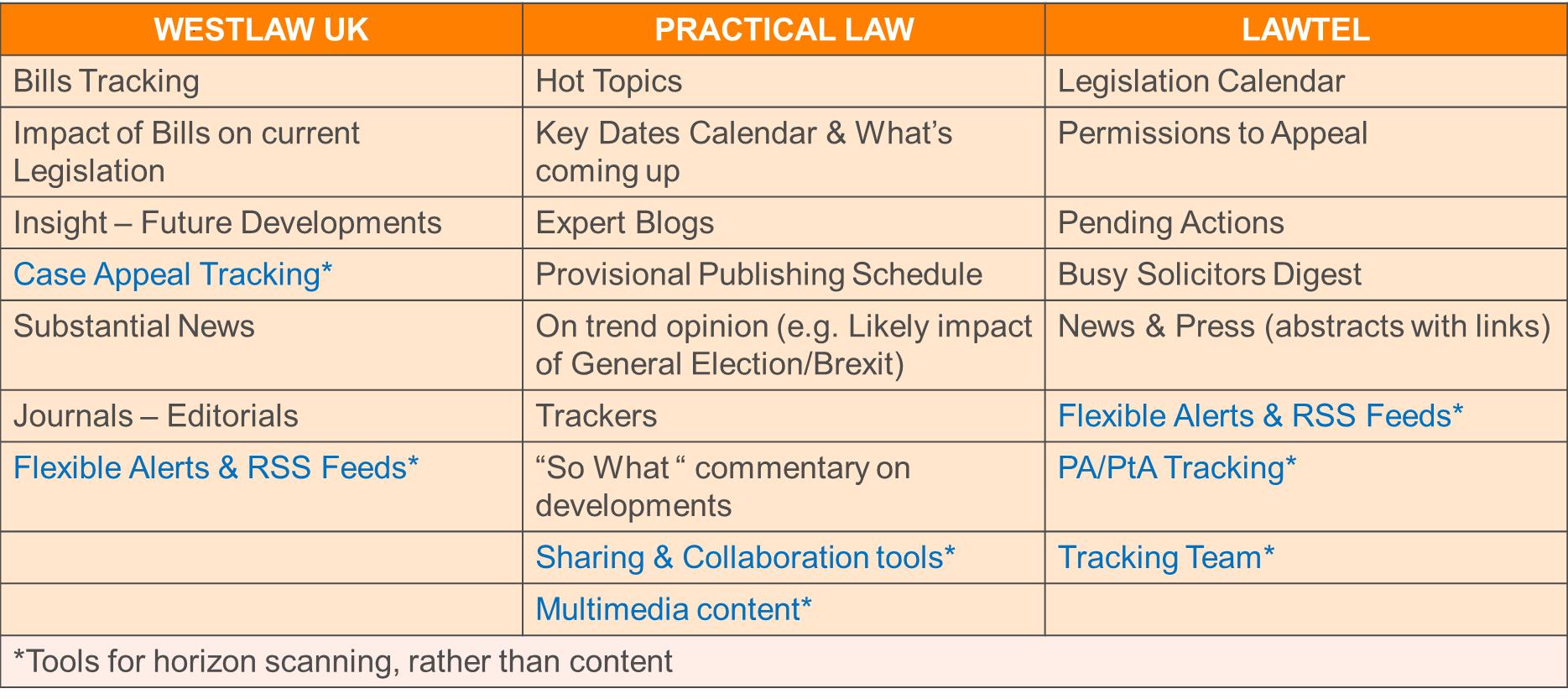Jessica Brown’s recent blog post, ‘Demystifying horizon scanning for lawyers’ highlighted that, ‘in this ever-changing legal climate, it is more important than ever for legal professionals to know the future state of their field, anticipate changes in the law and the effect it could have on how they, their clients and regulators operate.’ Seeing horizon scanning as an essential part of lawyers’ work, the blog post provides a helpful definition of horizon scanning (as distinct from current awareness), and of two core types of horizon scanning (‘wide net’, using a comprehensive approach to catch all developments, starting from the assumption that it is impossible to know which developments have an impact; and ‘sharp focus’ assessing the impact of a specific development).
Challenges for smaller firms
So, given how essential the blog post deems horizon scanning to be, why is there not more emphasis given to this in SME firms?
And what does ‘horizon scanning’ mean to them?
In talking to SME firms, it is often evident that their primary focus is necessarily on their immediate caseload, as well as on client retention and acquisition, on the development and running of the business of their firm. Serving existing matters profitably remains a core concern. Especially in an era when, despite strong demand driving growth for SME firms, they increasingly have to work harder, faster, smarter to deliver. And to address challenges of profitability and cash flow. The core focus has to be on resolving clients’ here-and-now problems. Future focus can take a backseat.
Why horizon scanning?
So, given the challenges of running an SME firm, why should they invest the time in horizon scanning? The answer is in the reasons why many people set up smaller law firms in the first place, the reason why many clients instruct them.
In our recent webinar with Sally Azarmi, we talked about how for SME firms, their individuals are the differentiator. They are the reason their clients have an increased willingness to pay, avoiding that race to the bottom on fees. Clients often select firms because of individuals’ specialised background, capabilities and the personalised service they offer. With these firms, and with slightly larger ones, industry or business knowledge is critical, the key to setting them apart. Firms need to free themselves up to be able to continue to add the value that drives business success.
With individuals as a critical differentiator, it is important for you and your firm to be the best you can be. Being on top of the way that the future will develop is therefore a critical component of the SME law firm toolkit. It enables positioning as a thought leader, ahead of the curve, able to add value to clients and their businesses, anticipating future challenges. And to anticipate potential obstacles to the robustness of the solutions proposed to current pressing problems. It acts as a critical tool to becoming a trusted partner, to engage existing clients, and to reengage with those you have previously worked with.
How can technology help SME firms with the challenge of horizon scanning?
But what about the challenges of carrying out horizon scanning, in often tightly resourced smaller firms with heavy workloads. As with many areas, technology can help lighten the burden, meaning that initial work can be conducted easily, efficiently, or by more junior members of staff.
Thomson Reuters have three products offering horizon scanning capability; these are outlined in the table below:

If you would like to find out more about any of the products listed in the table above, please follow the links below:
For additional information on horizon scanning, its application, and importance, visit: Forward Thinking: Horizon scanning for lawyers.
